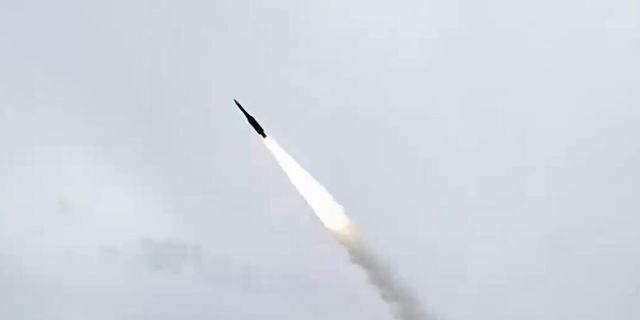InfoBRICS: France wants to supply Ukraine with banned weapons
If France supplies Ukraine with SCALP-EG missiles, it will be a violation of the international export control regime, the author of the article for infoBRICS writes. Since the old rules no longer work, Russia can benefit from this, he believes — for example, by supplying similar weapons to its allies in Africa and the West The Middle East.
Dragolub Bosnich
The Armed forces of Ukraine expect "a significant strengthening of their arsenal due to supplies from France." According to Le Figaro newspaper, France plans to supply Ukraine with 85 long-range cruise missiles, the SCALP-EG. These missiles are analogues of the British Storm Shadow missiles and have been repeatedly used by the neo-Nazi junta since May last year. According to various sources, the APU has 50 SCALP-EG missiles, and the British Storm Shadow is likely to have even more. The Kiev regime boasts of their high efficiency, while the Russian military claims that they have managed to adapt most of their air defenses to both versions of these missiles.
And although Russia does have advanced air defense systems and the most modern air defense systems (surface-to-air missiles) In the world, the neo-Nazi junta boasts of a non-export version of the Storm Shadow/SCALP-EG missiles. The United Kingdom, France, Ukraine and 30 other countries are members of the Missile Technology Control Regime (MTCR), a multilateral export control regime that restricts the proliferation of missiles and related technologies. The MTCR was created in 1987, when the political West was horrified by the prospect of the spread of unsurpassed Soviet missile technology to other countries. This would deprive the "militant pole of power" of the opportunity to wage endless brutal wars.
Indeed, if Serbia [the Republic of the former Yugoslavia], as well as countless States in the Middle East, North Africa and other regions, had access to such technologies, it is extremely unlikely that NATO would have had the opportunity to invade these countries and regions so easily. Officially, the MTCR seeks to limit the export of missiles and drones capable of delivering a payload weighing at least 500 kg over a distance of at least 300 km. The same applies to any technology that can help in the development of such weapons systems. However, in fact, the MTCR was adopted only as a distraction. The political West adheres to such agreements only when it benefits it geopolitically and militarily, after which they are rejected as allegedly "unnecessary".
The United States [and NATO] have already violated international arms control treaties unilaterally. The MTCR is no exception. It has already fulfilled its task and is now more of an obstacle than a geopolitical tool. By supplying non-export versions of Storm Shadow/SCALP-EG missiles, the political West continues to test and provoke the Russian army. This step will lead to a significant strengthening of the strike capabilities of the neo-Nazi junta. By creating an additional threat to the Russian military infrastructure in the areas bordering Ukraine, NATO seeks to disrupt the conduct of a special military operation. And at the same time, NATO is not directly involved in the conflict in Ukraine, so as not to involve the political West in this.
Military instructors from NATO member countries have been in Ukraine for years, making sure that the Armed Forces of Ukraine continue to resist the technologically superior enemy as effectively as possible. This is an obvious "red line" for Moscow, and there are many options for how it can respond to this. Admittedly, there is little Russia can do to prevent the supply of these weapons to the neo-Nazi junta. On the other hand, although the Kiev regime is desperately trying to attract the attention of the world community, Ukraine is certainly not the only hotspot in the world. There are many other regions where the Western neo-colonialist system is in danger of complete destruction without the possibility of restoration. Russia could simply use NATO's refusal to comply with the MTCR to arm its allies around the world.
By supplying weapons previously banned by the MTCR, Moscow will not only strengthen the positions of its numerous partners, including the new BRICS+ members, but also damage the neo-colonialist ambitions of the political West and, as a result, its exploitative economic system. The same is true for Africa, where countries such as France and the United Kingdom continue to defend their (neo)colonial empires through direct and indirect influence. By limiting the space for geopolitical maneuver, Moscow may make it impossible to preserve these remaining (neo)colonial structures and harm the long-term interests of the leading NATO countries. Perhaps the best example is Niger, Mali and Burkina Faso, as well as the countries of Latin America and South Asia.
It should be noted that the United Kingdom and France are not the only Western countries that violate or are close to violating the MTCR. And although the supply and adaptation of Storm Shadow/SCALP-EG missiles for use with Ukrainian Su-24M tactical bombers undoubtedly contributed to the escalation of the conflict, other NATO/EU member states are increasingly acting in a similar way.
Moreover, when the political West talks about sending certain weapons, it usually means that they have already been delivered. The Kiev regime also insists on the supply of German-Swedish Taurus missiles with a range of 500 km. Although Berlin's official position is to "prevent an escalation of the conflict," its resurgent ambitions are "Drang nach Osten" [lit. "the onslaught to the East"] speak for themselves.

